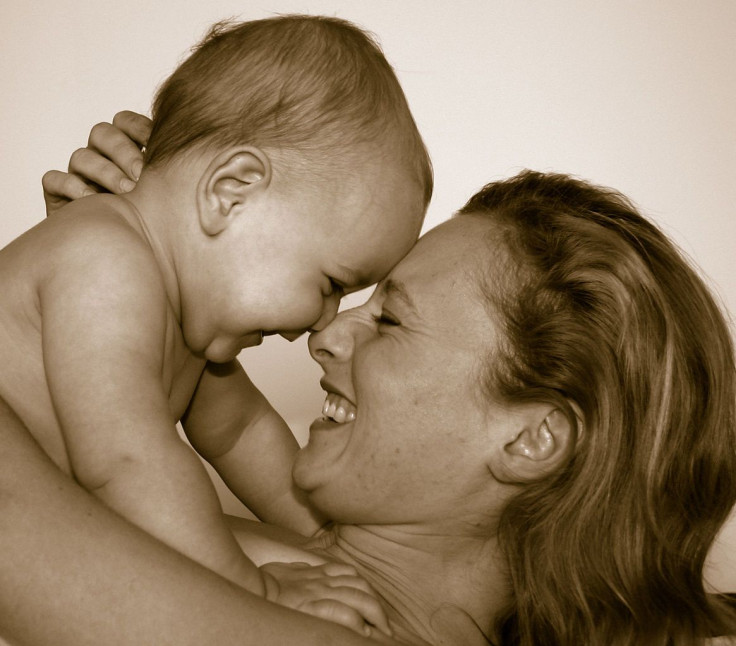Mammalian Mothers Choose Sex Of Offspring In Non-Conscious Process

A woman may choose the sex of her baby through a non-conscious physiological process based on social cues, maximizing her take in the evolutionary game.
Although the biological mechanism remains mysterious, scientists proved for the first time that mothers across the mammalian world adjust sex ratios of their offspring to ensure greater reproductive success among progeny. In the gaming theory of mammalian evolution, a female may offer a safe bet while the male provides a higher risk versus reward — depending greatly on the genetic quality of that male.
"This is one of the holy grails of modern evolutionary biology — finding the data which definitively show that when females choose the sex of their offspring, they are doing so strategically to produce more grandchildren," Joseph Garner, who led the study, told reporters.
In a study published Wednesday, Garner found sex selection across 198 species of mammals after analyzing 90 years of breeding records from the San Diego Zoo. Investigators charted the mating course of more than 2,300 animals across three generations, finding that "grandmothers" were able to strategically select male offspring when assured of higher quality, which in turn led to a greater number of offspring in the subsequent generation — a process believed to be largely controlled by females.
Theorists believe the female may control the male or female sperm, which have different shapes, as they move through the mucous in the reproductive tract, slowing or speeding selected sperm.
"You can think of this as being girl power at work in the animal kingdom," Garner said. "We like to think of reproduction as being all about the males competing for females, with females dutifully picking the winner. But in reality females have much more invested than males, and they are making highly strategic decisions about their reproduction based on the environment, their condition and the quality of their mate."
"Amazingly, the female is somehow picking the sperm that will produce the sex that will serve her interests the most: The sperm are really just pawns in a game that plays out over generations," he added.
The investigators pored over records from some 38,000 animals from 678 species in a labor-intensive effort to track generations of offspring that spanned years, if not generations, of their own time. They completed three-generation records for more than 1,600 female grandparents and 703 male grandparents, representing major mammal groups including primates; carnivores such as lions, bears, and wolves; cloven-hoofed animals such as cows, buffalo, and deer; and odd-toed grazing animals such as horses and rhinoceroses.
In humans, there is some evidence that a woman's physiology exerts influence over sex selection of sperm, given a higher birth rate of sons among "alpha" women in polygamous societies. Such favored women give birth to sons who would retain family wealth, which would in turn be used to propagate. Likewise, a 2013 study of 400 American billionaires found a greater likelihood of sons than daughters, for the same reason.
This new study builds on a theory first proposed in 1973 by the founders of evolutionary sociobiology, Robert Trivers and Dan Willard, hypothesizing that mammals select sex as mating strategy, based on relative position within the dominance hierarchy. More dominant mating animals would invest more in producing male heirs, whereas as lower-ranking animals would take the safer bet with females, whose productivity is physiologically limited but nevertheless guaranteed.
"The question is, within each species, among females who had more sons, did those sons do better in terms of producing more grandchildren per capita? And the answer is yes," Garner said. "Females are choosing and being very Machiavellian about it. They're doing it for their own benefit."
According to the study, male offspring produced by sex-selecting mothers in turn produced 2.7 times as many offspring as those born to mothers selecting an equal ratio of male and female progeny.
Source: Thogerson C, Garner J. Mammals Can 'Choose' Sex Of Offspring. PLOS ONE. 2013.
Published by Medicaldaily.com



























